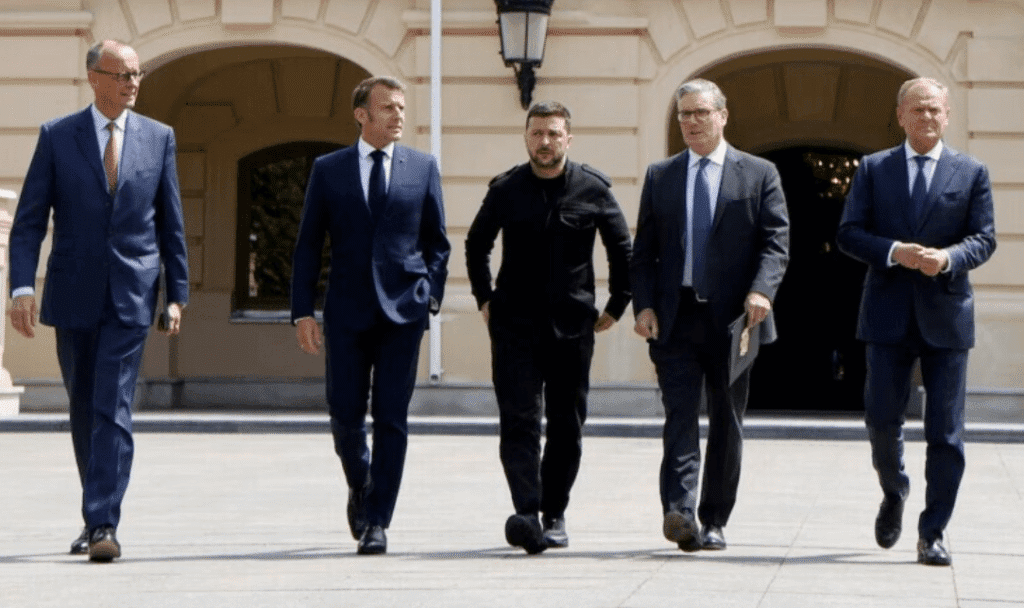The European Union and Britain have moved ahead with new sanctions targeting Russia, acting without waiting for the United States to join them. This decision came a day after President Donald Trump spoke with Vladimir Putin but failed to secure a ceasefire agreement in Ukraine.
The fresh sanctions focus on Russia’s “shadow fleet” of oil tankers and financial firms that have helped Moscow bypass earlier sanctions related to the ongoing war. Ukraine’s President Volodymyr Zelensky praised the move, emphasizing the importance of holding those responsible accountable.
Despite calls from European leaders for the US to join the sanctions, Washington has not yet announced corresponding measures. German Foreign Minister Johann Wadephul stressed the need for an immediate ceasefire and urged the US to share Europe’s resolve.
Recent talks between Russia and Ukraine, encouraged by Trump, did not lead to a truce, with Russia presenting demands that Ukraine rejected as unacceptable. European officials say this signals that President Putin is unwilling to pursue peace, with Germany’s Defence Minister Boris Pistorius accusing Putin of merely buying time.
Russia’s Foreign Ministry dismissed the sanctions as ultimatums they will not accept. Putin stated after his call with Trump that Moscow is prepared to discuss a future peace agreement but put the responsibility on Kyiv to respond.
European leaders have actively lobbied Trump to align with their sanctions, even arranging calls involving Ukraine’s Zelensky. While Britain and the EU hinted more sanctions may come, they remain hopeful the US will join their efforts.
The sanctions primarily aim to curb Russia’s oil exports by targeting its shipping fleet and enforcing a $60 per barrel price cap, which has been less effective as global oil prices have fallen.
With negotiations between Russia and Ukraine still uncertain, the EU and Britain are intensifying pressure to force an end to the conflict, while calling on all parties, especially the US, to take stronger action.
